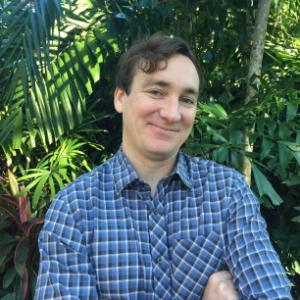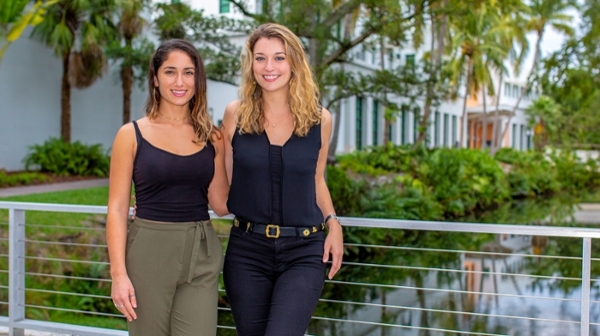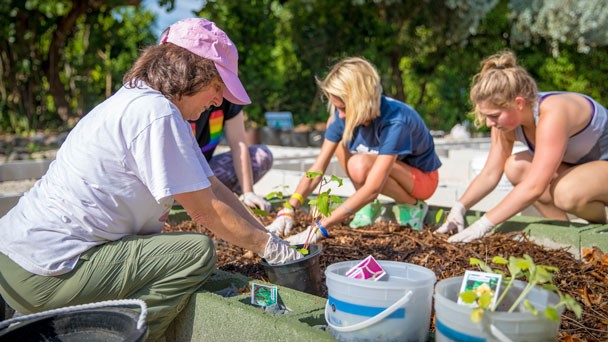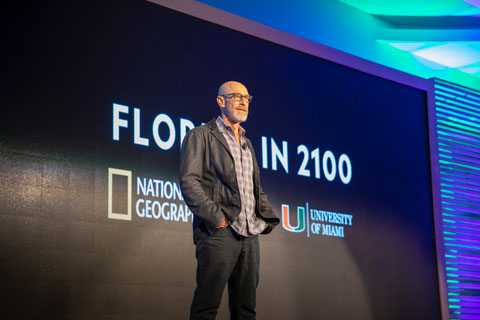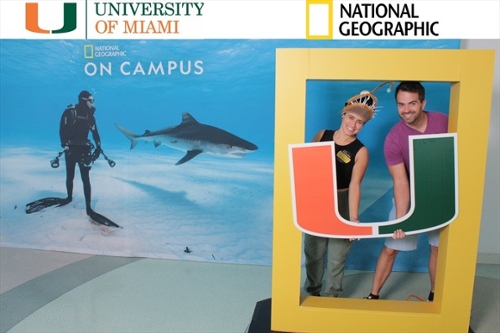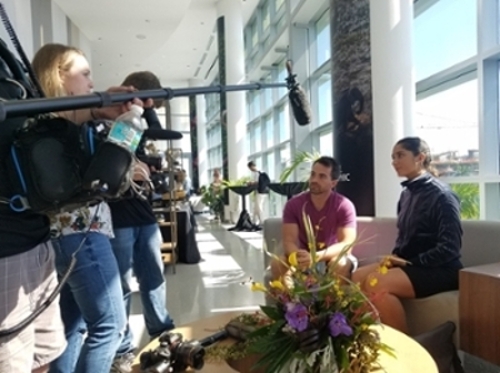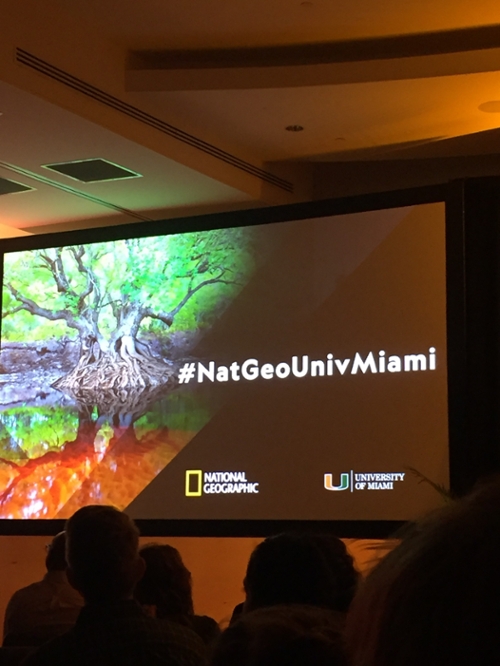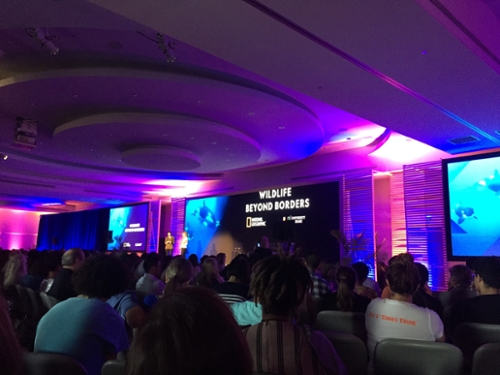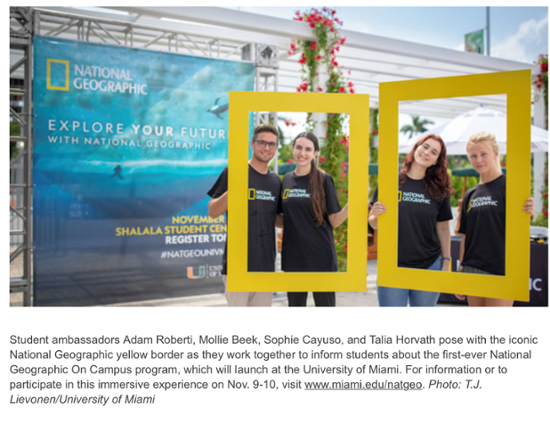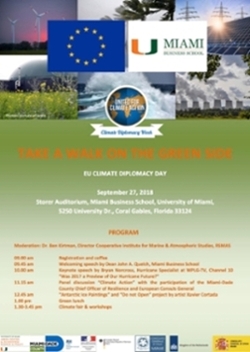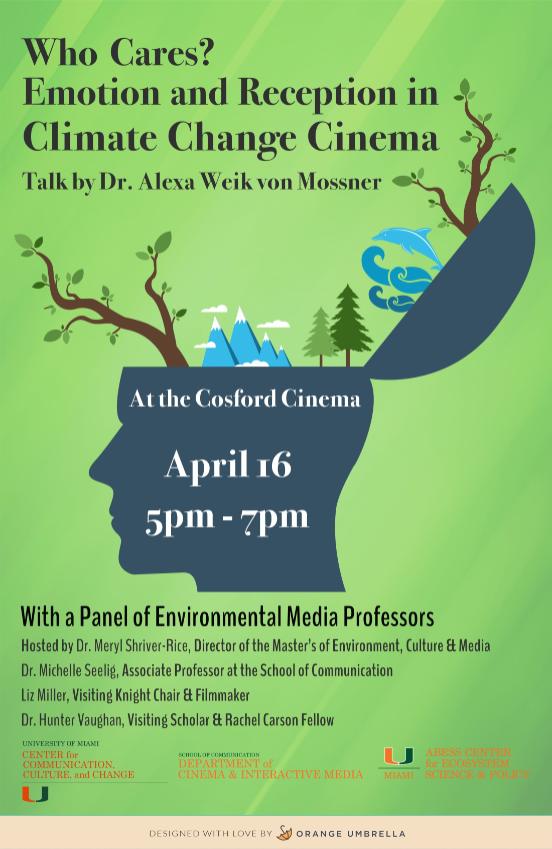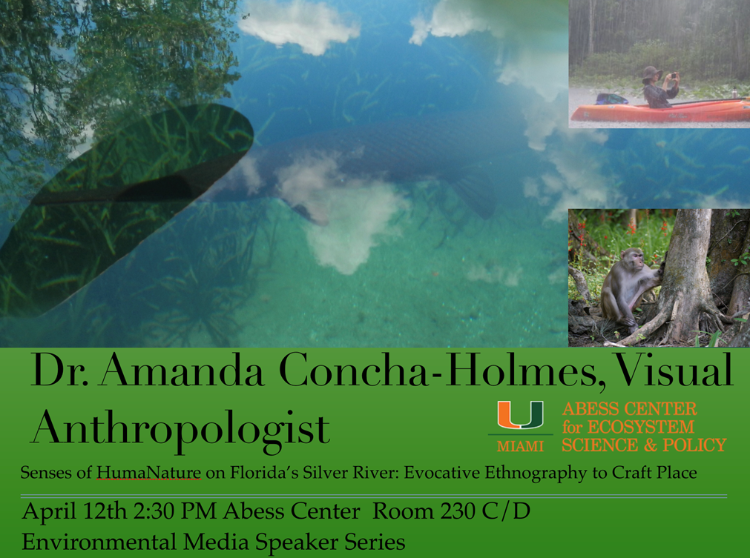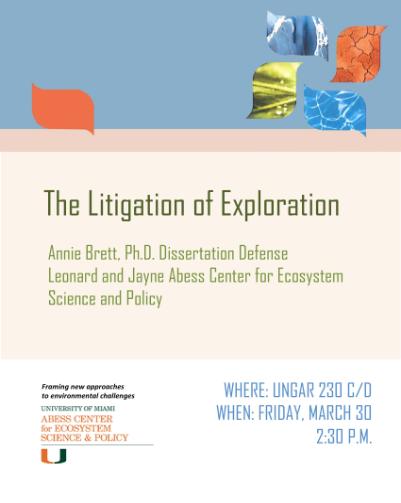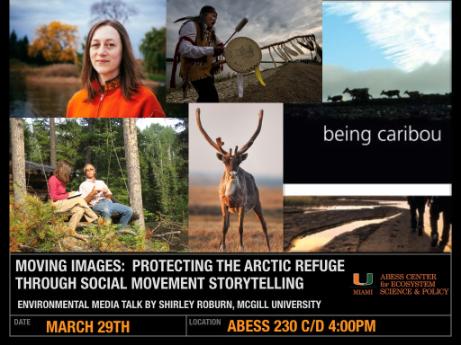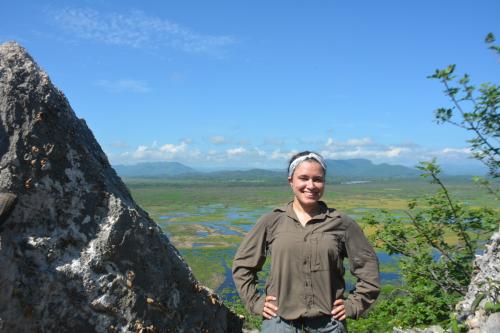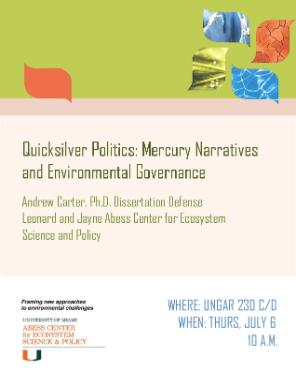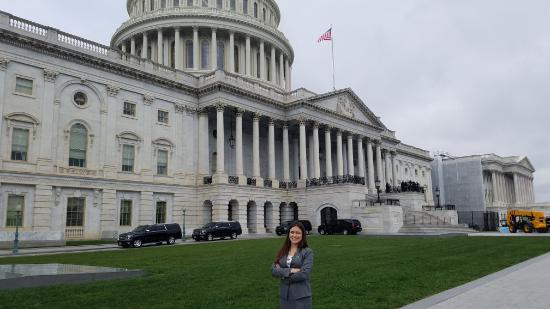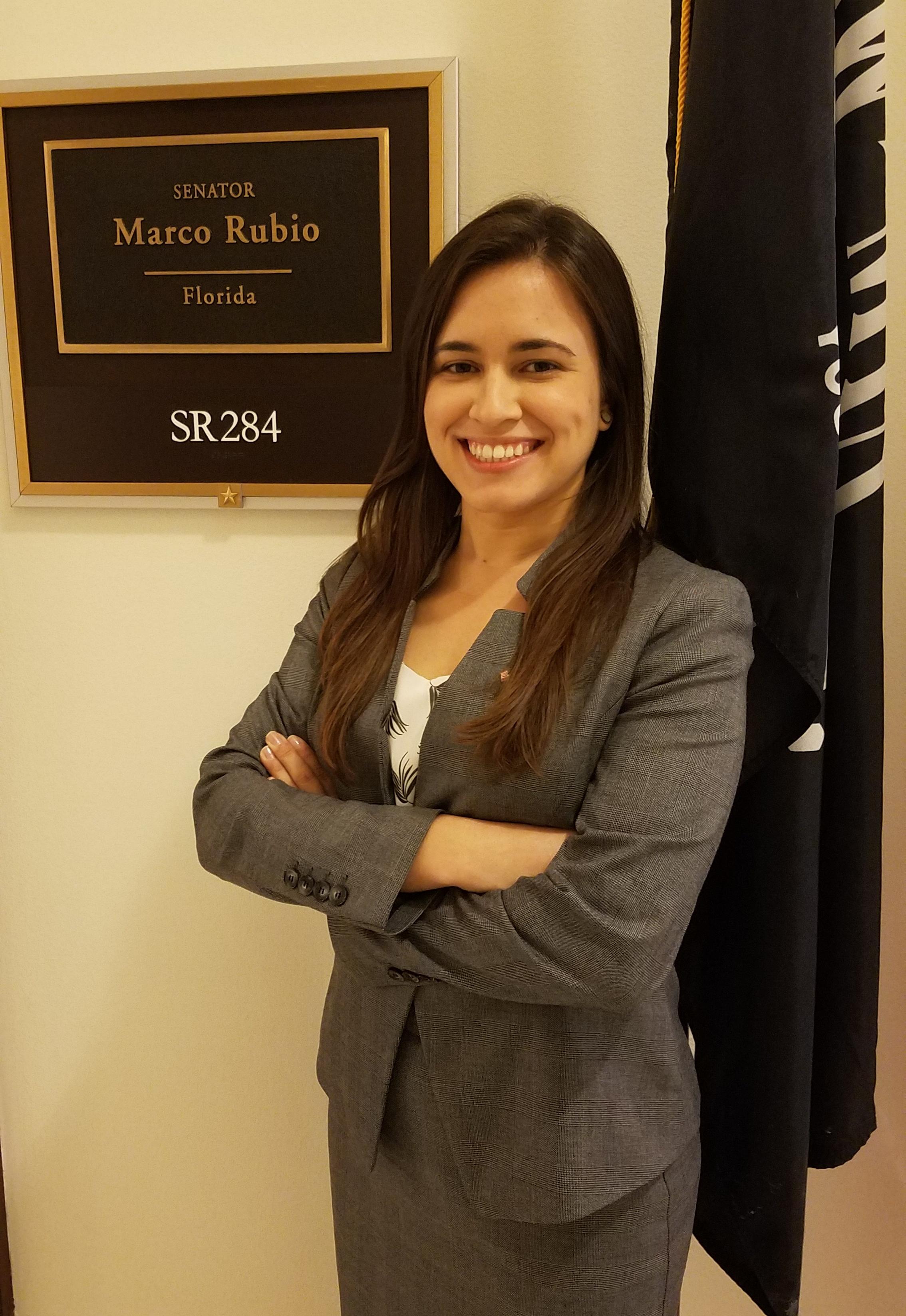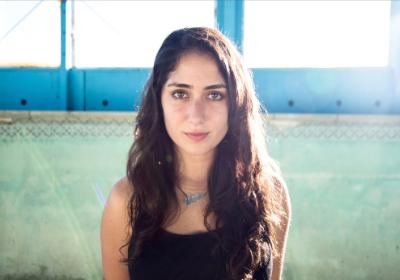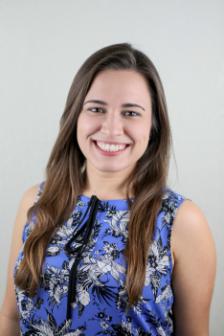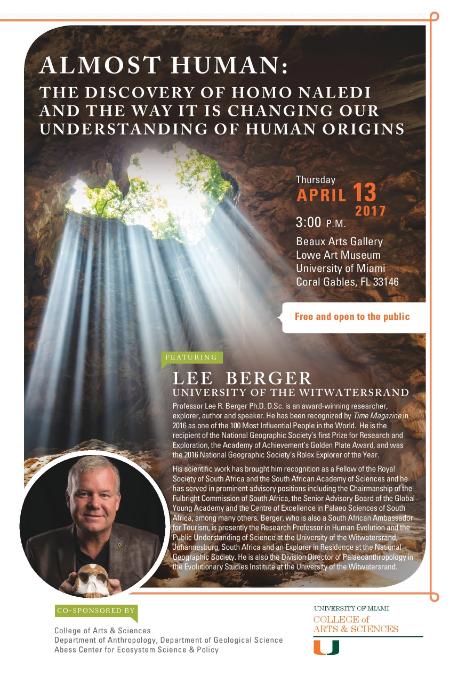The Abess Center welcomes 2017-2018 Visiting Lecturer Dr. Hunter Vaughan, who is teaching ECS 609 Contemporary Representations of the Environment (Fall 2017), and ECS 375 Ecocinema (Spring 2018).
Dr. Vaughan is an Associate Professor of Cinema Studies at Oakland University and a 2017 Rachel Carson Center fellow. He did his PhD at the University of Oxford, and is the author of Where Film Meets Philosophy (Columbia University Press, 2013) and numerous articles and book chapters on ecocriticism, film theory and philosophy, and identity in media. His upcoming book, Hollywood’s Dirtiest Secret: the Hidden Costs of Our Film Culture(Columbia University Press, 2018), constructs an environmental counter-narrative to mainstream American film history, exploring the material impact of cultural practices and the larger social worldview cultivated through Hollywood’s representation and use of the natural world. This study extends to the ways in which new media technologies and communication forms are reconfiguring our social activities, while also creating a new global network of cultural imperialism that includes precious metal mining in Africa, smart manufacturing in Asia, and digital dumping of e-waste across the planet. He co-founded and co-chairs the Society for Cinema and Media Studies' Media and the Environment scholarly interest group, is a co-founding editor of a new journal on environmental media, communication, and justice, and was recently invited to give a keynote talk at a Visualizing Climate Change Workshop at Georgia Tech University.
